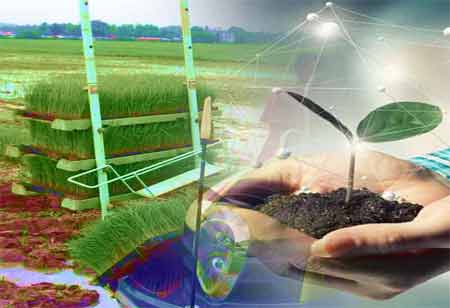THANK YOU FOR SUBSCRIBING
Be first to read the latest tech news, Industry Leader's Insights, and CIO interviews of medium and large enterprises exclusively from Education Technology Insights
AI Redefining Learning for the Next Generation
Artificial Intelligence (AI) is increasingly garnering momentum within various industries, particularly in the dynamic landscape of technology,

By
Education Technology Insights | Wednesday, January 24, 2024
Stay ahead of the industry with exclusive feature stories on the top companies, expert insights and the latest news delivered straight to your inbox. Subscribe today.
AI-powered personalized learning in education aims to customize each student's learning journey based on their strengths, weaknesses, and learning patterns.
FREMONT, CA: Artificial Intelligence (AI) is increasingly garnering momentum within various industries, particularly in the dynamic landscape of technology, and the realm of education is no exception. The integration of AI in education is reshaping our approach to learning, providing innovative solutions to longstanding challenges. We are witnessing the profound impact of AI on education, fundamentally altering how the upcoming generation engages in the learning process.
The Evolving Landscape of Education
In driving intellectual development and influencing life trajectories, education stands as a pivotal force at the forefront of societal advancement. The landscape of education is undergoing profound transformations due to the integration of artificial intelligence. AI tools, adept at adapting to individual learning styles, preferences, and pacing, are progressively supplementing, and in some instances, supplanting conventional teaching methodologies.
Personalized Learning with AI: The transformative capability of AI within education, particularly in furnishing tailored learning experiences, stands out as a remarkable feature. Leveraging sophisticated algorithms, AI systems assess students' learning styles, strengths, and weaknesses, paving the way for the creation of personalized courses. This individualized instructional approach ensures that students benefit from targeted support, fostering a profound understanding of the subject matter.
Adaptive Learning Platforms: AI-driven adaptive learning tools have witnessed increasing prevalence in educational settings worldwide. These platforms exhibit the capability to dynamically adjust the difficulty level of content based on individual student performance. This adaptive approach ensures that each student is challenged at an appropriate level, thereby optimizing learning engagement and mitigating the risk of boredom or frustration.
AI-Powered Tutoring Systems: Intelligent tutoring systems have emerged as valuable tools to enhance conventional classroom instruction, with AI playing a pivotal role in their functionality. These systems serve as continuous virtual educators, offering students prompt feedback, guidance, and additional resources. Consequently, they contribute to the enhancement of the educational experience, while simultaneously furnishing educators with valuable insights into the individual progress of each student.
Enhanced Teacher Efficiency: AI plays a pivotal role in enhancing the efficiency of educational processes by automating mundane administrative tasks such as lesson planning, attendance monitoring, and grading for both educators and students. This increased effectiveness empowers teachers to allocate more time towards understanding the unique requirements of each student, thereby fostering a collaborative and supportive learning environment.
Interactive and Immersive Learning: AI-driven solutions play a pivotal role in elevating the immersive and interactive facets of the learning experience. Specifically, AI-powered Virtual Reality (VR) and Augmented Reality (AR) applications open up unprecedented avenues for students to engage in hands-on learning. Through the simulation of scientific investigations, virtual journeys to historical events, and exposure to realistic scenarios, these technologies significantly augment student engagement and retention.
Natural Language Processing in Education: Within the realm of language-based education, Natural Language Processing (NLP) stands out as a distinct subset of AI. Language tools driven by AI possess the capability to understand and assess both spoken and written language, offering users prompt feedback on elements such as vocabulary, grammar, and syntax. This facilitates the enhancement of linguistic proficiency by delivering personalized instruction tailored to the specific learning needs of each student.
The Role of AI in Special Education: AI is significantly reshaping the landscape of special education. Tailored AI programs are playing a pivotal role in supporting students with learning difficulties through the provision of adaptable learning resources, individualized educational experiences, and continuous assistance. This inclusive methodology ensures that every student can grow in the classroom, irrespective of their unique learning styles.
Preparing Students for the Future: The skill set imperative for success in the evolving landscape of the future is undergoing a concomitant transformation with the rapid evolution of the world. In this context, the integration of AI into education emerges as indispensable for imparting students with the requisite knowledge and competencies essential for the twenty-first century. AI-enhanced learning experiences play a pivotal role in fostering critical thinking, problem-solving, creativity, and adaptability among students, thereby equipping them for a future in which these skills assume paramount significance.
The integration of AI in education is significantly reshaping the learning landscape, presenting unprecedented opportunities for the future generation. This transformative shift encompasses a myriad of advantages, including interactive technology, AI-driven coaching, personalized learning experiences, and adaptive platforms. The potential of AI to revolutionize education is evident in its capacity to enhance effectiveness, inclusivity, and engagement for students globally, despite the ethical considerations and challenges that accompany its implementation. AI can lead the way towards a future characterized by profound changes in learning techniques as we navigate these ethical complexities and overcome hurdles.







